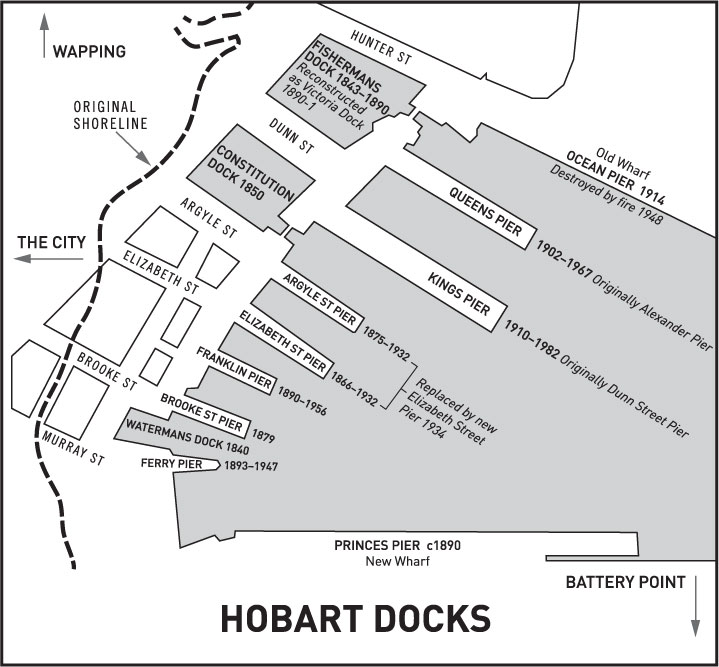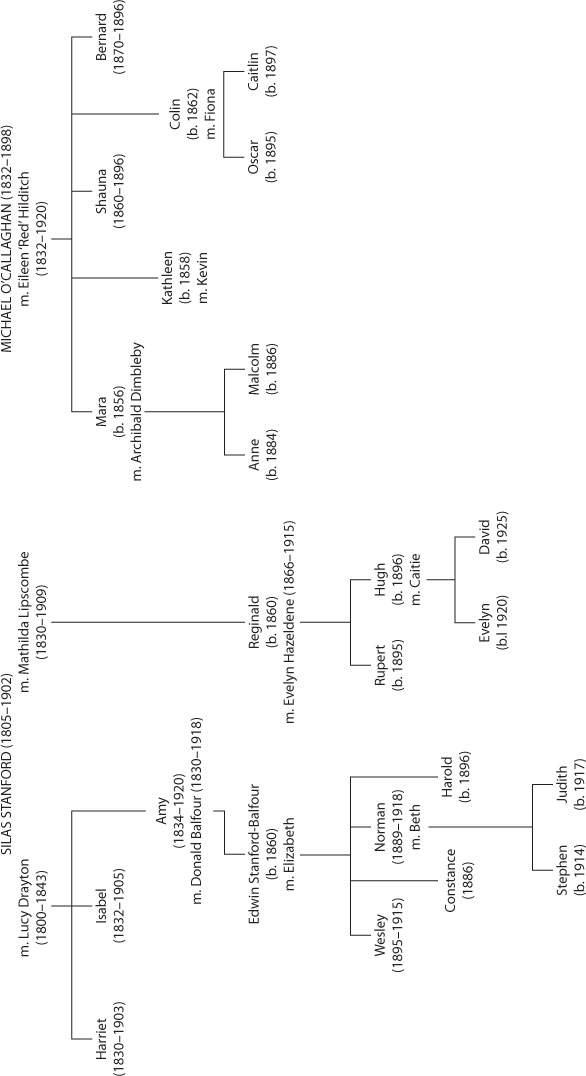Tiger Men


| Tiger Men |
| Judy Nunn |
| Australia |
| (2011) |
Set in Tasmania, Tiger Men is another brilliant work of historical fiction from master storyteller Judy Nunn.Van Diemen's Land was an island of stark contrasts; a harsh penal colony, an English idyll for its landed gentry, and an island so rich in natural resources it was a profiteer's paradise. Its capital Hobart Town had its contrasts too; the wealthy elite in their sandstone mansions, the exploited poor in the notorious slum known as Wapping, and the criminals and villains who haunted the dockside taverns and brothels of Sullivan's Cove. Hobart Town was no place for the meek. Tiger Men is the story of Silas Stanford, a wealthy Englishman; Mick O'Callaghan an Irishman on the run; and Jefferson Powell, an idealistic American political prisoner. It is also the story of the strong, proud women who loved them, and of the children they bore who rose to power in the cut-throat world of international trade. Tiger Men is the sweeping tale of three families who lived through...
Critical acclaim for
Tiger Men
‘Judy knows what ingredients a good story needs and she has poured them all into this novel . . . If you love Aussie history in fictional form, this is for you’
Woman’s Day
‘Judy Nunn has written another great novel based on historical fact. Her research is thorough and impeccable, and her characters, though fictional, are people to whom the reader can relate and empathise . . . I’ve enjoyed other Nunn historical tales, but this is by far my favourite’
Herald Sun
‘Bestselling author Judy Nunn follows the fortunes of three disparate yet inexorably linked families in this sweeping saga . . . A mini-series in the making?’
Australian Women’s Weekly
‘A must read’
Toowoomba Chronicle
‘Judy Nunn has a history of producing rollicking, historical yarns and she does it again with
Tiger Men
’
Weekly Times
BOUT THE BOOK
‘This town is full of tiger men,’ Dan said. ‘Just look around you. The merchants, the builders, the bankers, the company men – they’re all out for what they can get.’
Van Diemen’s Land was an island of stark contrasts: a harsh penal colony, an English idyll for its gentry, and an island so rich in natural resources it was a profiteer’s paradise.
Its capital, Hobart Town, had its contrasts too: the wealthy elite in their sandstone mansions, the exploited poor in the notorious Wapping slum, and the criminals who haunted the dockside taverns.
Hobart Town was no place for the meek.
Tiger Men is the story of Silas Stanford, a wealthy Englishman; Mick O’Callaghan, an Irishman on the run; and Jefferson Powell, an idealistic American political prisoner. It is also the story of the strong, proud women who loved them, and of the children they bore who rose to power in the cutthroat world of international trade.
From the pen of master storyteller Judy Nunn comes a sweeping saga of three families who lived through Tasmania’s golden era and the birth of Federation and then watched with pride as their sons marched off to fight for King and Country.
ONTENTS
Critical Acclaim for Tiger Men
More at Random House Australia

In loving memory of Molly Venables
(1917–2010)




‘Only remember that two-legged tigers . . . are much more dangerous than those who walk on four.’
Alexandre Dumas, pére, 1802–1870
The animal approaches the river with stealth: not for fear of predators, but in order to avoid alerting possible prey. It is early dusk and others may be slaking their thirst – a kangaroo perhaps, or a wallaby, or wombat. She hopes for a large kill (she has three hungry cubs to feed) but if necessary smaller prey will suffice. Her keen ears are alert to the slightest rustle among the grasses and foliage as this might signal a potoroo or a possum.
She is a nocturnal hunter and has come down from the woodlands to the valley, leaving her offspring in the safety of their rocky lair on the hillside. The cubs have been out of her pouch for some time, but they are not yet old enough to join her on the hunt. When they are she will teach them her skills.
The early evening air is crisp and clear with the chill bite of autumn. All is breathlessly still and, upon the glass-like river surface, the mirror-images of willows and ferns meet to create a magically perfect twin world.
There is no prey in sight, so the animal lowers her head and drinks, oblivious to the destruction she wreaks as ever-widening ripples spread in all directions. Then, her thirst assuaged, she slinks off into the undergrowth, barely visible, the black stripes of her tawny back melding with the shadows of fern fronds. The riverbank has not provided easy prey and she is on a more purposeful hunt now, her ears and eyes attuned to the slightest sound or movement.
Unlike some hunters, she relies more on sound and sight than she does on her sense of smell; and unlike others she relies on stamina rather than speed. She will run down beasts much faster than she, simply by chasing them into a state of exhaustion. She is strong.
She has travelled barely five minutes, covering considerable ground at an easy trot, but keeping low in the grasses, her sharp, black eyes searching the bushes and thickets for any sign of movement. Then she hears a sound. It is the low snuffle of a horse, and she instantly halts. This is not a sound she associates with prey, but rather with predator. She remains motionless, little more than the faintest ripple amongst the broad sea of grasslands.
The horse snorts again, nervously this time: it has caught her scent. She can see it now. Its form silhouetted in the soft half-light, it is tethered to a tree in the thicket up ahead. She has no fear of horses, but where there are horses, there are men, and she greatly fears men. She is right to do so, for man is her one true predator. She keeps away from his settlements, but more and more he encroaches upon her territory and more and more she is forced to retreat. Her world is changing.
The horse tosses its head. Aware of her presence, it is restless.
Her muscles tense, and she makes to flee. The predator cannot be far off. But before she can move, a shot rings out.
The man steps from the thicket where he has been watching the slight tell-tale movement in the grasses – he too is an experienced hunter. He approaches the corpse and rolls it over with his foot. A fine specimen, he thinks, in excellent condition. On top of the tiger bounty, there’d be money for the hide. What a stroke of luck. He’d only come out to set his traps.
OOK ONE
